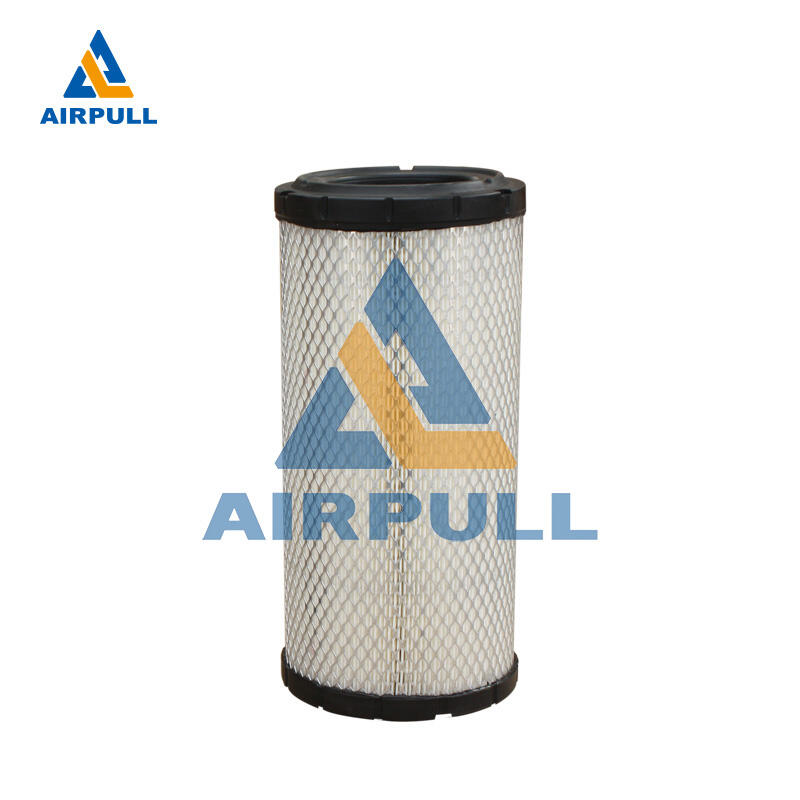Understanding the Critical Role of Filtration in Compressed Air Systems
The efficiency and longevity of any compressed air system heavily depend on proper filtration. An air compressor filter serves as the guardian of your entire compressed air network, protecting sensitive equipment and ensuring the delivery of clean, contamination-free air. In industrial settings, where air quality directly impacts product quality and equipment performance, selecting the right filtration solution becomes paramount.
Modern industrial processes demand increasingly pure compressed air, making the selection of appropriate filtration systems more crucial than ever. From manufacturing facilities to medical applications, the consequences of inadequate filtration can range from reduced efficiency to complete system failure. Understanding how to choose and maintain the right air compressor filter can save thousands in maintenance costs while significantly extending equipment life.
Types of Air Compressor Filters and Their Applications
Particulate Filters: The First Line of Defense
Particulate filters represent the most fundamental type of air compressor filter, designed to capture solid contaminants from the air stream. These filters typically use a mesh or fiber material to trap particles of various sizes, from large dust particles to microscopic contaminants. Available in different grades, particulate filters can capture particles as small as 0.01 microns, depending on the specific requirements of your application.
The efficiency of particulate filters is often measured in terms of their micron rating, with lower numbers indicating finer filtration. For general industrial applications, a filter rated at 5 microns might suffice, while sensitive equipment or medical applications might require sub-micron filtration levels.
Coalescing Filters: Managing Liquid Contaminants
Coalescing filters excel at removing both liquid aerosols and fine particles from compressed air. These sophisticated filters work by forcing air through a labyrinth of fibers, causing tiny droplets to combine (coalesce) into larger drops that can be easily collected and drained. This type of air compressor filter is particularly crucial in applications where oil contamination must be minimized.
Modern coalescing filters can achieve removal efficiencies of 99.9999% for particles down to 0.01 microns, making them essential in industries such as food processing, pharmaceuticals, and electronics manufacturing. The selection of a coalescing filter should consider both the required purity level and the system's operating conditions.
Essential Features to Consider When Selecting Filters
Pressure Drop and Energy Efficiency
One of the most critical yet often overlooked aspects of air compressor filter selection is pressure drop. Every filter inevitably creates some resistance to air flow, resulting in pressure loss. This pressure drop directly translates to increased energy consumption, as the compressor must work harder to maintain the desired pressure level.
Modern filter designs focus on minimizing pressure drop while maintaining filtration efficiency. When selecting a filter, consider both the initial pressure drop and how it changes over time as the filter element becomes loaded with contaminants. Some advanced filters now include differential pressure indicators that monitor pressure drop, helping operators optimize maintenance schedules.
Flow Capacity and Sizing Considerations
Proper sizing of an air compressor filter is crucial for optimal performance. A filter that's too small for the system's flow rate will create excessive pressure drop and may fail prematurely. Conversely, an oversized filter represents an unnecessary investment and may not function as effectively at lower flow rates.
When determining the appropriate filter size, consider not just current needs but also potential future expansion. Most manufacturers provide sizing charts that relate flow capacity to operating pressure, making it easier to select the right model. It's also important to account for any periodic peak demand that might exceed normal operating conditions.
Maintenance and Performance Optimization
Filter Element Replacement Strategies
Regular maintenance of air compressor filters is essential for maintaining system efficiency and air quality. Filter elements should be replaced before they become so loaded with contaminants that they cause excessive pressure drop or begin to release captured particles back into the air stream. Many modern filters include visual indicators or electronic monitoring systems that signal when replacement is needed.
Developing a proactive maintenance schedule based on operating conditions and manufacturer recommendations can help prevent unexpected downtime and ensure consistent air quality. Some facilities benefit from keeping spare filter elements on hand to minimize system downtime during maintenance.
Monitoring and Quality Assurance
Implementing a comprehensive monitoring strategy helps ensure that your air compressor filter system continues to perform as intended. Regular testing of air quality downstream of filters can verify their effectiveness and identify any developing issues before they become serious problems. Modern monitoring systems can provide real-time data on parameters such as pressure drop, moisture content, and particle counts.
Documentation of filter performance and maintenance activities not only helps optimize system operation but may also be required for compliance with quality standards in certain industries. Regular analysis of this data can reveal trends that help predict maintenance needs and improve system efficiency.
Frequently Asked Questions
How Often Should Air Compressor Filters Be Changed?
The replacement frequency for air compressor filters depends on several factors, including operating conditions, air quality requirements, and the specific type of filter. Generally, particulate filters should be changed every 6-12 months, while coalescing filters might need replacement every 3-6 months. However, it's best to base replacement on differential pressure readings or visual indicators rather than time alone.
What Happens If You Don't Change Air Compressor Filters?
Neglecting filter maintenance can lead to increased energy costs due to higher pressure drop, reduced air quality, and potential damage to downstream equipment. In severe cases, clogged filters can rupture, allowing contaminants to flow freely through the system and potentially causing catastrophic equipment failure.
Can I Clean and Reuse Air Compressor Filters?
While some basic particulate filters can be cleaned to extend their life slightly, most modern air compressor filters, especially coalescing types, are designed to be replaced rather than cleaned. Attempting to clean these filters can damage the media and compromise their effectiveness. It's always best to follow manufacturer recommendations and replace filters as specified.





